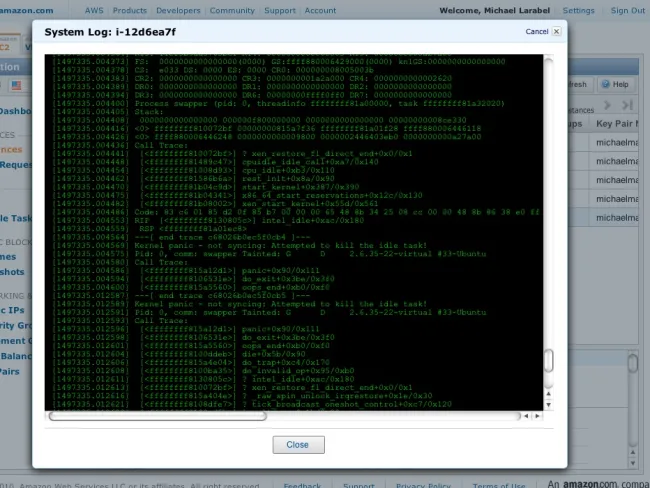Amazon EC2 Cloud Benchmarks
Following last week's KVM vs. VirtualBox benchmarks and then looking at the multi-core scaling of KVM virtualization, we now have up some benchmarks of Amazon's EC2 (Elastic Compute Cloud) looking at the performance of this leading cloud computing service. This is just the start of some Amazon EC2 benchmarks with this article looking at the performance of their m1.large and m1.xlarge instances compared to some other hardware. There is also an OpenBenchmarking.org ID for those interested in replicating these tests.
While we benchmark lots of hardware, this is surprisingly our first time delivering Amazon EC2 cloud benchmarks. This though is not the first time the Phoronix Test Suite is being deployed for cloud benchmarks but our friends at Cloud Harmony have been delivering a plethora of cloud computing benchmarks quite frequently using our large Phoronix Test Suite arsenal of performance and reliability tests. This is also just the beginning of our cloud computing benchmarks with more Amazon EC2 tests of other instances and of other AMIs (Amazon Machine Images) coming in the next few weeks.
For this first set of benchmarks in Amazon's cloud, we used Ubuntu Server 10.10 64-bit (ami-548c783d) on the m1.large (Large) and m1.xlarge (Extra Large) instances in Amazon's east coast data center. We had also hoped to deliver results from Amazon's high-CPU instances (i.e. c1.medium, c1.xlarge, m2.4xlarge, etc) but this Ubuntu Server 10.10 AMI was producing kernel panics upon the initial boot process with these other instance types. These other high-performance cloud computing instances though will be used when carrying out our next round of tests with other more reliable AMIs. The smallest cloud computing instance, t1.micro, had not completed the testing process. The t1.micro instance was far too slow and unreliable for accurate benchmarking as the EC2 compute power had fluctuated greatly with its short bursts to two compute units. The m1.small instance was left out too because it is only a 32-bit platform.
The m1.large instance has 7.5GB of system memory, four EC2 Compute Units (two virtual cores with two EC2 Compute Units on each virtual core), 850GB of instance storage, 64-bit capable, and high I/O performance. The m1.xlarge instance has 15GB of RAM, eight EC2 Compute Units (four virtual cores with two EC2 Compute Units per core), 1.69TB of instance storage, 64-bit capable, and high I/O performance.
Besides benchmarks from these two Amazon EC2 cloud installations, we also tossed in results from two systems running within our labs for reference, running on actual hardware. One system had an AMD Opteron 2384 Quad-Core CPU with a Tyan S2927 motherboard, 4GB of system memory, and an OCZ Agility EX 64GB SSD. The other system was the Intel Core i7 970 setup (six physical cores plus Hyper Threading) on an ASRock X58 SuperComputer motherboard, 3GB of system memory, and a 320GB Seagate ST3320620AS SATA HDD. These two systems were also running Ubuntu 10.10 x86_64 with the Linux 2.6.35 kernel and GCC 4.4.5.
Powered by the Phoronix Test Suite, the tests in this cloud performance benchmark roundabout included Apache, SQLite, PostMark, Bullet Physics, OpenSSL, Gcrypt, John The Ripper, POV-Ray, Parallel BZIP2 Compression, Himeno, MAFFT, NAS Parallel Benchmarks, x264, FFmpeg, and LAME MP3 encoding. In total though we ran more than 40 benchmarks on each of the Amazon EC2 instances and hardware within our labs. To see all of these results plus to compare your system or cloud instances against these references, if running the latest Phoronix Test Suite 3.0 "Iveland" Git code with OpenBenchmarking.org support you can simply run phoronix-test-suite benchmark 1012216-IV-EC2CLOUD252.

